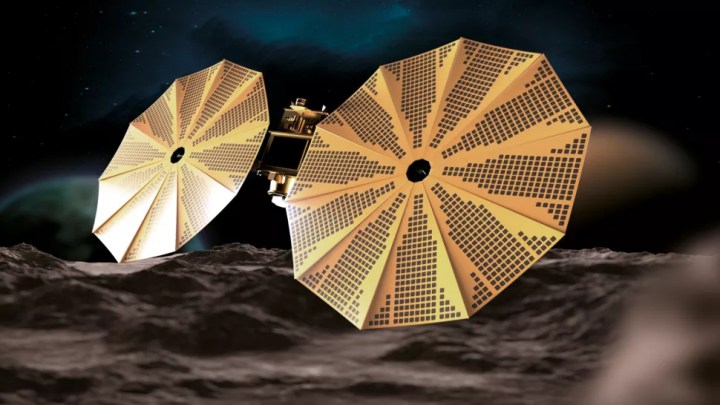Following the success of its mission to Mars, the United Arab Emirates (UAE) plans to send a new spacecraft to an asteroid belt to investigate the history of the solar system and the potential origins of life.
The aim is for the Emirates Mission to the Asteroid Belt (EMA) to visit its first asteroid in 2030. It will visit a number of asteroids in the belt between Mars and Jupiter, following a launch in 2028, and will even land on one. The spacecraft will be named MBR after the ruler of UAE.

Studying asteroids is an important way to learn about the history of the solar system, as the material that makes up asteroids can be almost pristine, dating back to the formation of the solar system around 4 billion years ago. Recent missions like NASA’s OSIRIS-REx and Japan’s Hayabusa2 have demonstrated the feasibility of visiting asteroids and collecting valuable scientific data.
To extend current knowledge, the EMA mission will have four science instruments — two spectrometers, a high-resolution optical camera, and an infrared camera — which will be used to study features of the asteroids like their geology and composition.
The mission will first perform flybys of six asteroids: Westerwald, Chimaera, Rockox, 2000 VA28, 1998 RC76, and 1999 SG6. It will then touch down on asteroid Justitia by deploying a lander from the main spacecraft. Justitia is particularly interesting to scientists because it is thought to have originated from beyond the orbit of Neptune, and research has shown evidence of the presence of organic molecules, or the building blocks of life, there.
The UAE says the project will consist of a six-year development period followed by seven years of exploration by the spacecraft. “MBR Explorer’s journey to the the Asteroid Belt will span over 5 billion kilometers, surpassing Mars, as we explore 7 asteroids and ultimately land on Justitia in 2034,” the Dubai media office wrote on Twitter. “The remarkable journey will be 10 times the distance covered by the Hope Probe. For Emiratis, our motto will always be ‘nothing is impossible.'”
The UAE launched its first mission to Mars with the Emirates Mars Mission in 2020, making the Hope spacecraft the first interplanetary mission by an Arab nation. Since its arrival at Mars in 2021, Hope has made discoveries about the upper martian atmosphere and the auroras that exist at Mars.
The UAE also sent its first astronaut to the International Space Station in 2019, Hazza Ali Almansoori, followed by Sultan Al Neyadi, who launched in March of this year as part of SpaceX Crew-6 and who is still currently on board the station.



